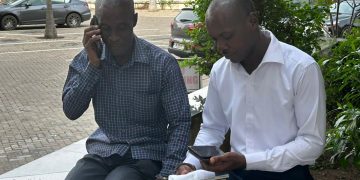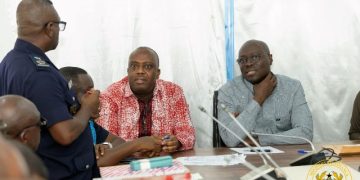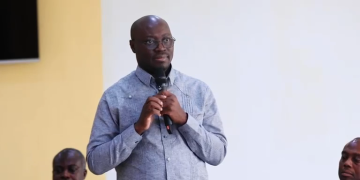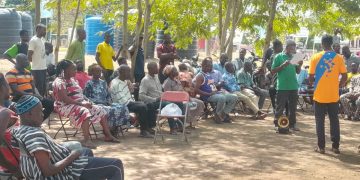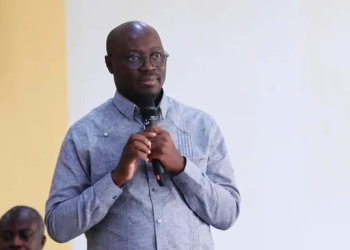The detention of activist Oliver Barker-Vormawor and 52 others following a protest has sparked widespread criticism and ignited a legal and moral debate over their right to bail.
This recent development, highlighted by investigative journalist Manasseh Azure Awuni in a Facebook post, questions the justification for the continued detention of the protesters when they are presumed innocent until proven guilty.
Oliver Barker-Vormawor, a leading member of the #FixTheCountry movement, was arrested in 2022 and charged with treason felony after a Facebook post that the state deemed inciteful.
His bail was initially denied, and he was held in custody for an extended period, drawing public outcry. Since then, he has complied with all court processes, even returning to Ghana after being granted access to his passport to travel.
However, in 2024, Barker-Vormawor and 52 others were arrested again for allegedly blocking roads and causing a public nuisance during a protest. Despite their requests, the state has refused to grant bail to any of the arrested protesters, raising concerns about whether the legal principle of “innocent until proven guilty” is being undermined.
In his post, Manasseh Azure Awuni challenges the reasoning behind Barker-Vormawor’s continued detention. He notes that since his arrest in 2022, Barker-Vormawor has demonstrated no intention of fleeing or violating his bail conditions, raising the question: what has changed to warrant his detention now?
“Is the state saying he did not run away after being charged with treason but will run away after being arrested for skirmishes during a protest?” Awuni asks. He also questions whether the court conducted individual assessments before deciding that all 53 protesters should remain in custody.
“Are all of them flight risks?” he queries, or is the state’s refusal of bail an overreach in the absence of evidence tampering?
The case has reignited conversations about bail rights in Ghana’s legal system. According to Awuni, individuals accused of serious crimes like murder can be granted bail, thanks to legal precedents like that of human rights lawyer Martin Kpebu.
The protesters, charged with causing a nuisance, are far from being convicted criminals, yet remain in custody. “Our laws say these 53 protesters are innocent until proven guilty,” Awuni reminds the public, questioning why their rights to bail are being denied.
The journalist also poses a moral question to those supporting the detention of the protesters: would they maintain the same stance if those arrested were from their political party or family? Awuni calls on people to reflect on their positions and consider how such a situation would feel if it involved their own loved ones.
The argument, as Awuni emphasizes, is not about whether the protesters acted lawfully or unlawfully — that is for the courts to determine. The issue is whether the refusal of bail aligns with the legal protections afforded to every Ghanaian citizen. Until their guilt is established in a court of law, Barker-Vormawor and the 52 others, like all accused persons, remain presumed innocent.
As the debate continues, legal experts and human rights advocates are keeping a close eye on the outcome, which could set a precedent for how the judicial system handles similar cases in the future.
Source: www.kumasimail.com /IJB-Kumasi


